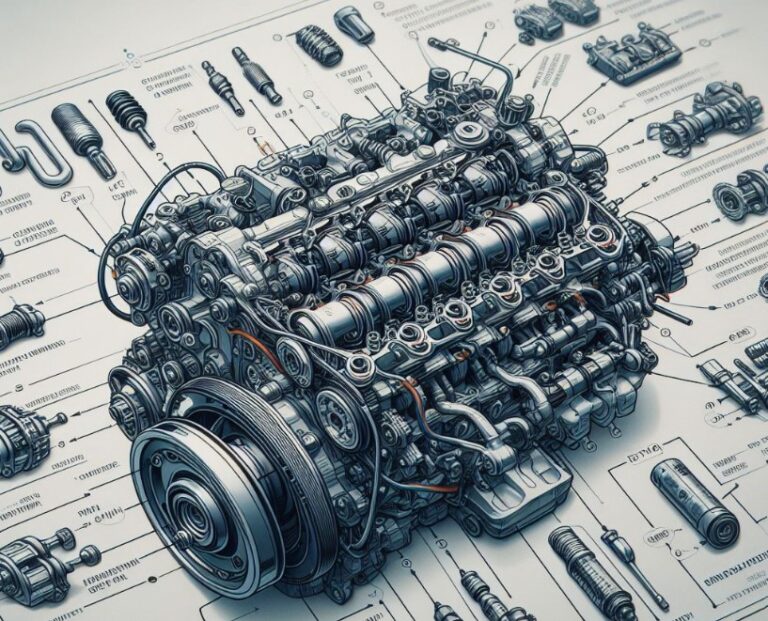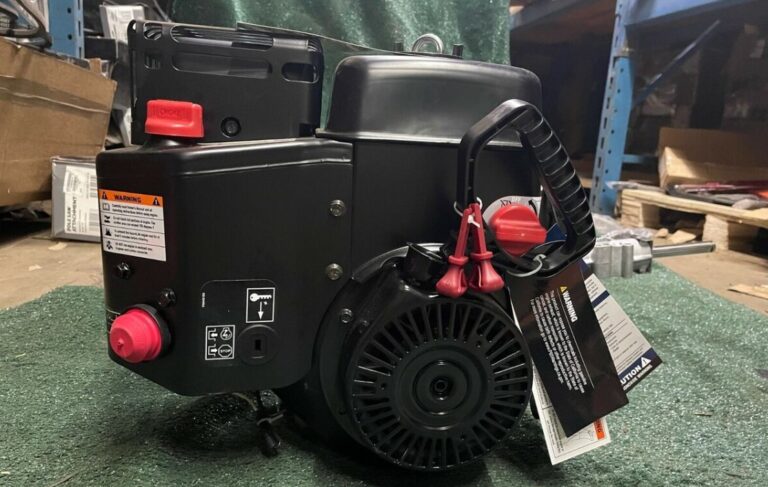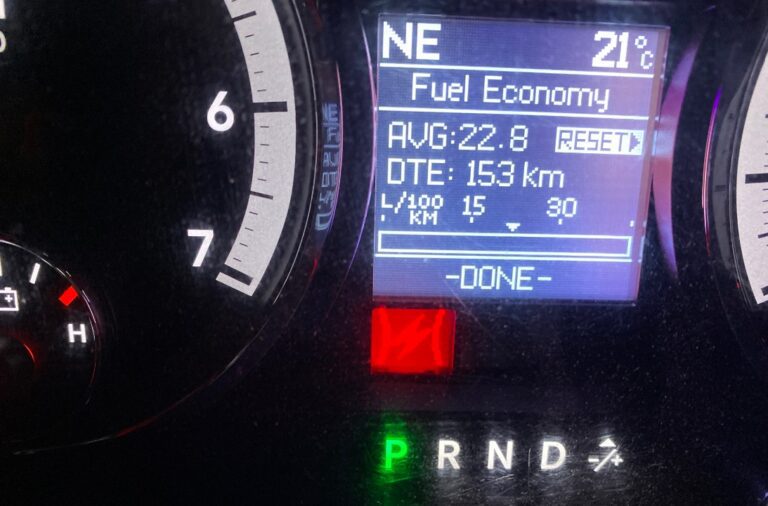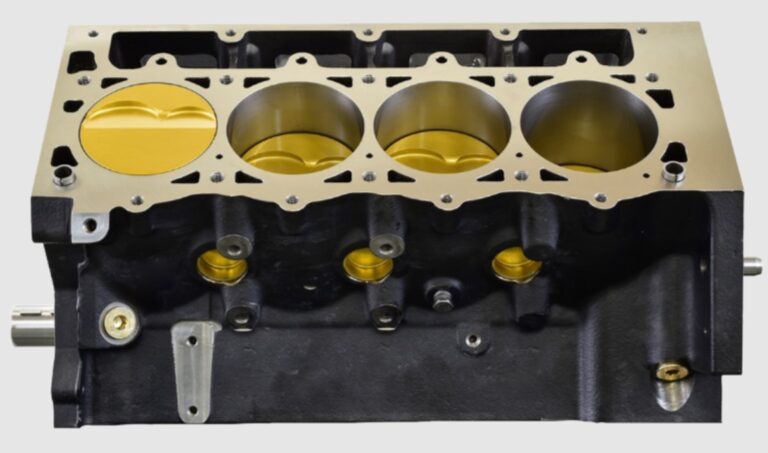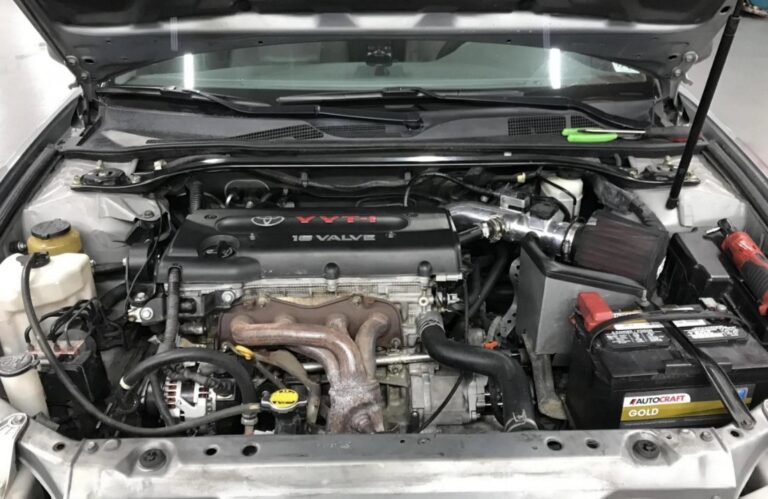Are Diesel Engines Faster Than Petrol Engines? Answered
Let’s investigate Are Diesel Engines Faster Than Petrol Engines? Every driver has always had a dual worry regarding gasoline versus diesel engines.
The efficiency can be calculated based on some characteristics shared by both engines, such as acceleration, torque, and horsepower.
You will learn the main cause of why gasoline engines have less torque and more horsepower and acceleration than diesel engines.
Are Diesel Engines Faster Than Petrol Engines?
Although the diesel version has more torque than the petrol version, it does so at a lower RPM, so shifting is required earlier than the petrol version.
Fuel produces more power, accelerating from 0 to 100 miles per hour faster.

Petrol Vs Diesel Engine Full Comparison

Fuel Comparison
Each fuel contributes significantly to the power of a gasoline or diesel engine, giving each of them unique properties.
In terms of pure science, diesel fuel has a higher energy content per volume than gasoline (36.9 megajoules vs. 33.7 megajoules per liter).
Diesel is a denser fuel that is difficult to ignite, whereas petrol is, by nature, a lighter fuel that evaporates into the air more rapidly than diesel.
This is one of the reasons why diesel engines rely more on compression to ignite the fuel, whereas gasoline engines need a spark plug to do the same.
Compression Ratio
After talking about compression, it’s critical to comprehend compression ratios. Every engine has a unique compression ratio, which denotes the proportion between the greatest and smallest cylinder capacities used to compress the air-fuel mixture.
After being ignited, the compressed air-fuel mixture results in combustion, which generates the power we enjoy.
Compression ratios for diesel engines typically range from 14:1 to 22:1, which is twice that of petrol engines, which typically have a compression ratio of 8:1 to 9:1.
A petrol engine may run with lower compression ratios and a spark plug to ignite the fuel and air mixture because gasoline is ready to ignite.
Contrarily, diesel requires the cylinder to compress the air to the point where introducing diesel fuel causes the air-fuel mixture to ignite immediately.
Because a diesel engine compresses more air per cylinder to ensure that the fuel can be burned, it has a higher compression ratio.
Power Production
This has two obvious effects on the car’s performance, specifically the torque and brake horsepower (BHP).
Diesel engines produce more torque due to a higher compression ratio (longer stroke and turbocharger), which results in greater acceleration off the line.
This acceleration, though, is only fleeting because the torque in diesel cars is dispersed over a much smaller region, and their power band is considerably smaller.
This gives the impression that the engine accelerates quickly after starting up.
Because the engine’s torque decreases precisely as the turbocharger begins to spool up to provide more air to the engine, turbocharging helps maintain this power for a longer period.
On the other hand, the power increases as the engine revs up in petrol engines. As a result, there is more useful power available for longer. Pushing the needle to the red line on a petrol car is incredibly satisfying.
Still, even if you’re not going for it, you can’t deny the extra useful power you have over a comparable diesel.
So, if you do use phrases like “POWER” every time you press the accelerator, you will have a more enjoyable experience operating a gasoline-powered vehicle.
Three Factors To Diverge Diesel And Petrol Engines
Although you may have studied different physics laws to assess the performance of diesel and gasoline engines, the key components still need to be identified.
The three criteria used to compare the effectiveness of the two engines are stated below. So let’s investigate!
Higher Horsepower In Petrol Engines
An engine develops more horsepower the more quickly it spins. Let’s use two donkeys as an example to help you understand. One is overweight, the other ordinary.
Which of the two donkeys would complete the task the quickest when carrying three 20kg packets? The fat donkey can carry all three packets but will move more slowly.
On the other hand, a typical donkey can quickly transport two packets and convey them to their destination. The situation with gasoline engines is the same.
Petrol has the attribute of moving the fastest. Hence, it has more horsepower than a diesel engine.
Higher Torque Of Diesel Engine
One of the numerous reasons a diesel engine can generate more torque than a petrol engine is the higher density of diesel fuel.
Additionally, the ratio and pressure at the compression end are two other factors that contribute to the higher torque of diesel engines.
Additionally, a fraction of a second is all it takes for a petrol engine to burn. Better compression ratio, fuel density, firm burning, and pressure are increased torque indicators.
As a result, the petrol engine is very different from the diesel engine because it lacks all of these characteristics. Therefore, the gasoline engine has less torque in every regard.
Faster Acceleration Of Petrol Engine
As we already know, diesel fuel requires more powerful machinery because it is thicker than gasoline. Therefore, a diesel engine has more heavy machinery than a petrol engine.
Therefore, stopping a diesel engine requires a lot of energy. Contrarily, a petrol engine will have lighter parts because it is lighter, making it easier to rotate. Because of this, gasoline engines accelerate more quickly than diesel engines.
Petrol is highly refined, which causes it to burn quickly. In addition, the petrol engine’s torque grows as speed increases due to its linear torque curve.
Conclusion
Yes! Diesel engines faster than petrol engines. Therefore, a petrol engine has more horsepower and swiftly reciprocates its parts. On the other hand, diesel engines offer a higher torque, which makes them more effective for many drivers.
Your outstanding industrial knowledge can aid in your development as a driver. When choosing an automobile, consider these things regarding diesel and gasoline engines.
People Also Ask
Do diesel engines have better acceleration?
Even though they are less efficient for people who drive mostly in cities, diesel engines are still more effective than gas engines. Additionally, diesel vehicles have more torque, enhancing fuel efficiency and acceleration.
Why are diesels more powerful?
As previously indicated, diesel fuel is denser and has 39.6 MegaJoules of energy per liter as opposed to 33.7 MegaJoules for gasoline. This shows that more energy is transmitted to the pistons each time diesel fuel is burned, increasing the torque on the crankshaft.

Matt Rex brings 12 years of specialized automotive expertise, holding a professional degree in Automotive Engineering Technology. As the founder of Turbochaos, he delivers comprehensive diagnostic services, performance optimization, and fleet maintenance solutions, backed by advanced certifications in hybrid/electric systems and ADAS technology. Its innovative methodologies have earned industry recognition while maintaining a 98% customer satisfaction rate.

